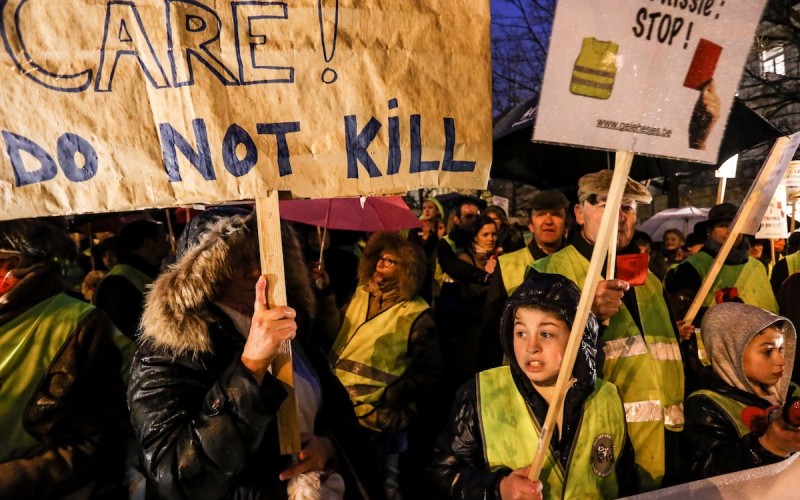When right-to-die becomes duty-to-die: the chilling case of euthanasia in Belgium
The concept of “thin end of the wedge” is a standard one in moral argument.
Jan 11, 2016

Fr Alexander Lucie-Smith
The concept of “thin end of the wedge” is a standard one in moral argument. What it means is this: when you concede a point in hard cases, very soon the concession you made, despite the safeguards that were stipulated at the time, gradually comes to apply to other less hard cases, and eventually to all cases. “Thin end of the wedge” is the equivalent of the old legal saw that “Hard cases make bad law.”
We should be familiar with the thin end of the wedge in this country. The Abortion Act of 1967 was meant to cater for hard cases, and to make unsafe back street abortions unnecessary; it was not, at least so we were told at the time, meant to open the floodgates. But history has shown otherwise. Though the text of the Abortion Act sounds fairly restrictive, in practice Britain has abortion on demand. Those who dispute this would do well to back up their case by producing women who have asked for abortions and been refused them.
The thin end of the edge is also evident in Belgium, with its supposed toleration for hard cases in the field of euthanasia, as reported here. This is a chilling quote:
Technically, euthanasia remains a criminal offence in Belgium with the law protecting doctors from prosecution if they abide by carefully set criteria. It is limited to adults and “emancipated children” who are suffering unbearably and who are able to consent.
But critics say that the law is interpreted so liberally that euthanasia is available on demand, with doctors giving lethal injections to the disabled, the mentally ill and those with dementia, as well as patients who are terminally ill.
Last year, a paper published in the highly respected Journal of Medical Ethics reported that the majority of euthanasia cases in Belgium involve patients who are illegally “put to death” by doctors without ever giving their consent.
Numbers of deaths by euthanasia have also soared incrementally over a decade, from 235 in 2003 to 1, 807 in 2013.
These facts speak for themselves. But it goes further than this. Euthanasia is usually touted as a voluntary act – hence the reference to “emancipated children”. Yet the question remains whether all those put to death by doctors truly made an informed decision. This is a particularly acute question when dealing with those who have impaired mental capacity.
Along with the “thin end of the wedge” argument, we also have to face the realisation that what starts off as voluntary often ends up as compulsory. I have known women who have not wished to have abortions who have been subjected to immense pressure to abort by doctors and others. The same may be true with cases of euthanasia where there has been talk of a “duty to die” as Lady Warnock has reminded us.
It is now being argued in Belgium that Catholic nursing homes have a duty to provide euthanasia; in other words, that Catholic nursing homes have a duty that would ipso facto make them non-Catholic. This is not just another advance of the euthanasia agenda, it is also an attack on freedom of religion and freedom of association.
Let’s hope and pray that this case to force Catholic institutions to provide euthanasia fails. Let us hope that Catholic nursing homes remain places where vulnerable people will remain safe. After all, it is the mission of the Catholic Church to advance the gospel of life: as part of this, the Church aims to provide nursing homes where residents can have the absolute certainty that they will not be killed by their doctors.--Catholic Herald







Total Comments:0